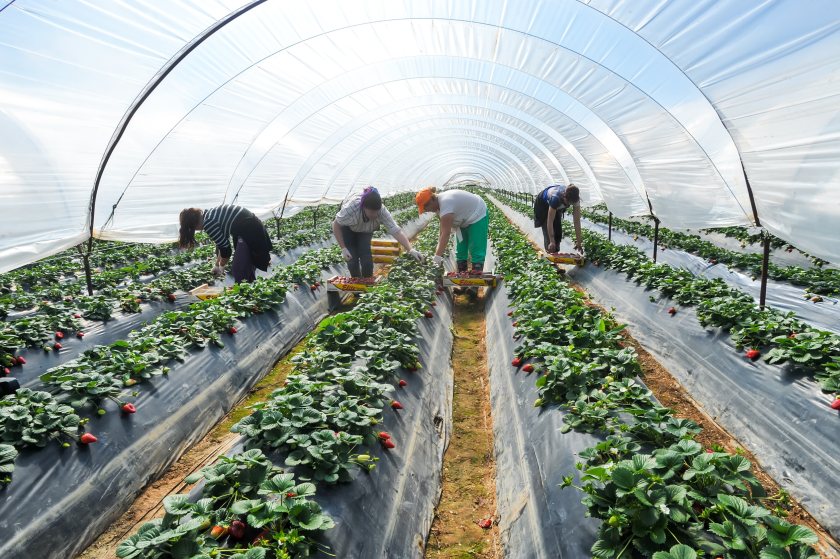
Britain’s farmers have won a crucial victory in their battle against crippling labour shortages, after the NFU secured confirmation of visa allocations for the 2026 Seasonal Worker Scheme (SWS).
The announcement gives the horticulture and poultry sectors long-awaited certainty to plan for the year ahead — though industry leaders warn that falling numbers of seasonal workers continue to threaten food production and farm profitability.
The decision follows a Westminster meeting between NFU President Tom Bradshaw and Farming Minister Dame Angela Eagle, where Defra confirmed allocations of 41,000 visas for horticulture and 1,900 for poultry workers.
The SWS remains a short-term visa route enabling overseas workers to fill temporary roles in horticulture and seasonal poultry, and is excluded from the government’s net migration figures.
The confirmation comes after Dame Angela Eagle visited a Kent soft fruit farm with Tom Bradshaw and NFU Horticulture and Potatoes Board Chair Martin Emmett, where she heard directly from members about the need for clarity on visa numbers for 2026.
In recent years, farmers have faced growing labour shortages as fewer seasonal workers travel to the UK — a trend driven by global competition for farm labour, higher travel costs, and post-Brexit visa changes.
Many growers report struggling to recruit enough staff to pick crops on time, forcing them to leave fruit unharvested or scale back planting plans.
Tom Bradshaw said the NFU was pleased the government had listened to concerns and provided a firm figure for the year ahead.
“We’re pleased that the Minister has listened and confirmed the SWS 2026 visa allocation. While there has been a small reduction in numbers, we are hopeful it will still be sufficient for the year ahead,” he said. He emphasised the vital role of seasonal workers in the UK’s food chain.
“Seasonal workers play a vital role in ensuring the nation’s fresh fruit and vegetables reach supermarket shelves, that British plants and flowers feature in celebrations across the country, and that turkeys remain the centrepiece of the Christmas table. Without them, the horticulture and seasonal poultry sectors could not function.”
Bradshaw added that while the 2026 allocation offers short-term reassurance, growers need longer-term certainty to plan effectively.
“Certainty is critical for these sectors, which plan in years, not months. Looking ahead, it’s essential that we have clarity on visa allocations through to 2029,” he said.
“The number of SWS visas needs to remain sufficient to allow our members to continue producing food, plants and flowers for the nation.”
The NFU also recently secured greater flexibility within the SWS, allowing returning workers to re-enter the UK sooner than previously permitted — a change designed to support continuity and skills retention across farm businesses.
